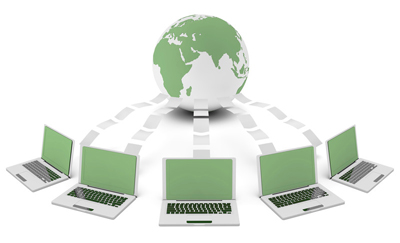 Quite like the U.S., the healthcare systems in many nations are continuing to move from towards electronic functioning. Electronic health communication is gradually replacing conventional communication, and physicians are being encouraged to adopt digitization. The advantages of quick information access, savings in physical storage space, and reduced risk of information loss are too great to ignore.
Quite like the U.S., the healthcare systems in many nations are continuing to move from towards electronic functioning. Electronic health communication is gradually replacing conventional communication, and physicians are being encouraged to adopt digitization. The advantages of quick information access, savings in physical storage space, and reduced risk of information loss are too great to ignore.
In America, the transition from paper-based health records to an electronic health records (EHR) is progressing. Technology-enabled processes such as closed loop e-prescriptions which would help improve the patients’ adherence to their medication, and more patient engagement for better wellness management, are also becoming popular. However, change is often resisted though, and the shift to EHRs and other electronic processes is no different.
Complaints against EHR Implementation
Surveys have revealed that physicians in the U.S. have complained about increased costs and the complex nature of EHRs which, they felt, impeded their functioning, adversely affected patient care, and brought down the efficiency and profitability of their practice. Specifically, physicians experienced EHR usability issues, which led to problems in clinical workflow. They found entry of data into the electronic health record a time-consuming affair that interfered with their face-to-face interaction with patients, an important element of care. Moreover, many physicians felt that the tasks they had to perform for the EHR could be carried out in a more efficient manner by in-house clerks and outsourced transcribers.
Though these are all valid reasons, industry experts believe that the EHR journey is one that will evolve over many years and offer many benefits, including a workable, practical electronic record environment.
Easing the Shift from Paper to Digital
A few pertinent measures can help physicians ensure a smooth transition to digital from manual or paper-based functioning:
- Upfront planning is necessary for choosing the right electronic system for your practice – a system that isn’t too complicated to adjust to and one that is also efficient. Strangely, a survey in 2013 revealed that US healthcare practices primarily selected their EHR system based on what others were using, which is not exactly ideal.
Plans should include training procedures for the staff so that they can adjust effectively to the new processes and systems for better implementation. The transition from paper-based to electronic would involve many challenges and being prepared will ensure success.
- Moving from conventional manual systems to electronic systems comes with worries about costs and implementation. An efficient migration plan must be put in place by practices. You may need technical help or outside assistance in migrating from paper to paperless records, which would involve processes like scanning and document conversion to various formats.
- The American Health Information Management Association (AHIMA) reiterates that paper documents and various types of media containing patient health information will continue to exist into the near future. AHIMA recommends that there should be a formal process for managing forms, paper, electronic, hybrid, and system-generated records, including input, output, and versioning of document content and access. Formal processes and written guidelines are also necessary for addressing access, confidentiality, security, print control, spoliation mitigation, disclosure, and e-discovery.
While conceiving measures to make the transition process to electronic as smooth as possible, key issues such as compliance, compatibility and user-friendliness must taken into account. Ultimately, the switch to EHR will optimize patient care, reduce healthcare costs and improve practice efficiency.



